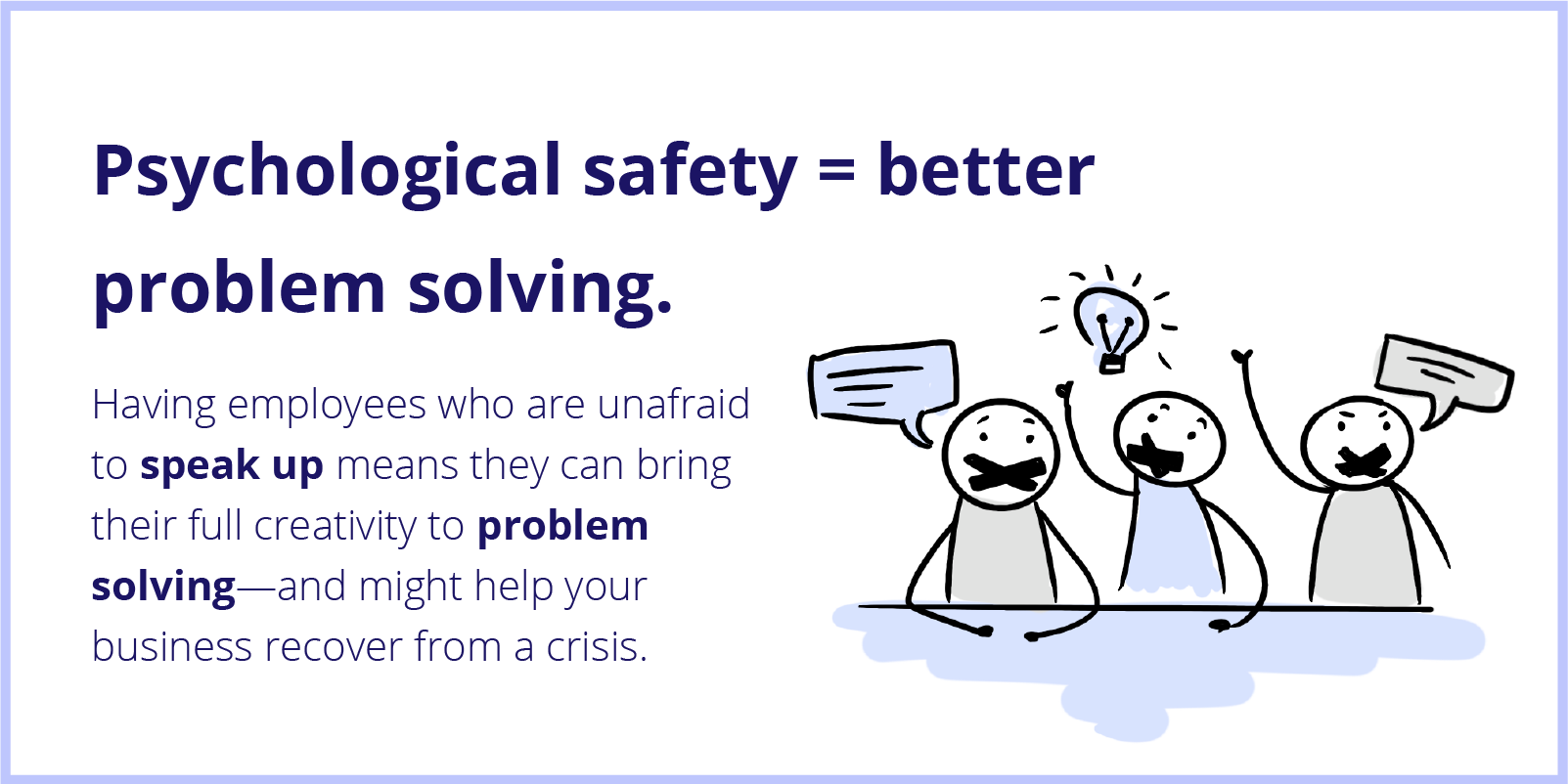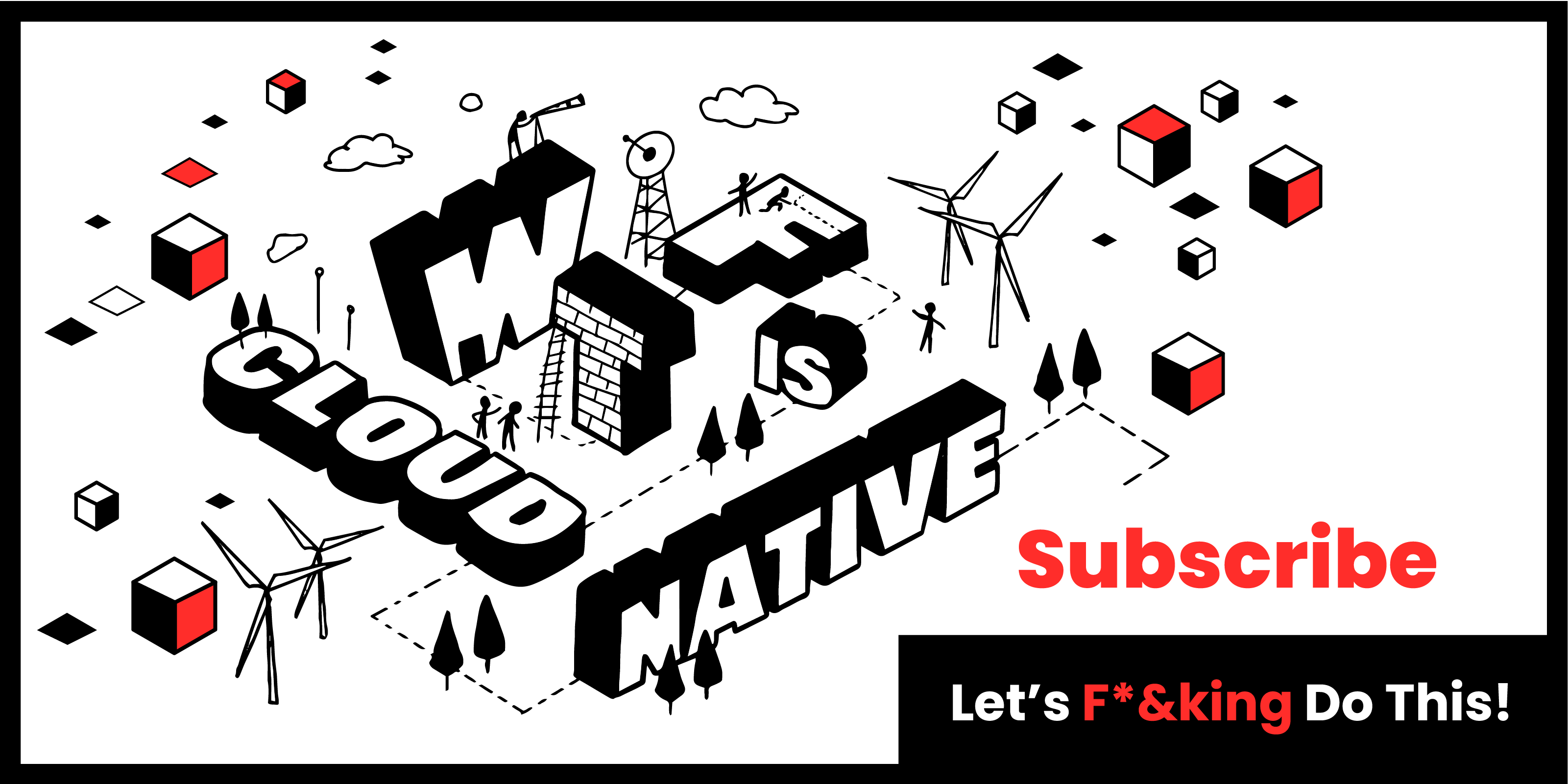In a previous blog post, I wrote about how having a psychologically safe work environment can help organisations in dealing with future and unknown risks.

Some risk factors have always been more common, like new competitors or losing customers due to a lack of innovation. Conditions that posed a risk are either Volatile, Uncertain, Complex or Ambiguous (VUCA).
VUCA conditions are both systematic and behavioural failures we see in organisations; the term was introduced by the U.S. Army War College but has spread to strategic leadership across various industries. The global COVID-19 crisis seems to encompass all of those VUCA traits.
In any of these conditions, psychological safety in the workplace is directly tied to the bottom line, even more so if all four happen at once. Being able to create psychological safety is a leadership responsibility. It can make or break an employee’s ability to contribute, to grow and learn, and to collaborate. Having employees who are unafraid to speak up means they can bring their full creativity to problem solving—and might help your business recover from a crisis. In a crisis (such as a global pandemic), that freedom to share ideas can save lives.
Why We Keep Silent
We all remember a situation where we wanted to ask a question, but we didn't. Or had an idea we wanted to share, but didn't. In a hierarchy, we often don’t feel we can speak up.
Research has shown that these types of silences are very common.
Why don’t we speak up? Often, it’s one of these three reasons:
- Fear of damaging a relationship
- Lack of confidence
- Self-protection (we do not want to look incompetent)
These are commonly known as interpersonal risks. We fear rejection or we fear others might think differently of us if we say the ‘wrong’ thing. To deal with this, we try manage our image and how others perceive us. We all have the implicit and very natural tendency to be safe rather than sorry.
In every situation, especially those that require us to speak up or share, we weigh the cost and the benefits, and in that situation we make a decision—maybe only in a split second, but we do. And how we choose depends on the cost/benefit analysis.
If the costs are immediate and tangible— for example, the anger or irritation of a direct manager—it’s no wonder no one will speak up.
Other very common implicit ideas in the workplace are:
- Don't criticise something your boss may have helped create.
- Don't speak unless you have solid data.
- Don't speak up if the boss is present.
- Don't speak up in a group with anything negative about the work, to prevent the boss from losing face.
- Speaking up brings career consequences.
The power of our instinct to play safe is strong: no one was ever fired for being silent, right?
We sometimes lack the confidence that our ideas and voices will make a real difference. But, to tell employees, ‘Just be courageous and speak up!’ won't do the trick either. We can only make speaking up routine by creating psychological safe institutions and systems.
By keeping silent out of self-preservation and avoiding embarrassment, you might have a bigger impact than you realise: your input could have been either life saving or at the least a learning opportunity for yourself and others.
Overcoming a Fear of Speaking Up
We are all operating in a VUCA world right now. It is more important than ever to encourage new ideas to flow freely.
How do we overcome our fear of speaking up, and start creating the psychologically safe culture we need in our organisations?
Here are some practical things leaders and managers can do now:
Provide a reason for taking a risk. Give people motivation to speak up. For example: ‘We've never been here before; we can't know what will happen; we've got to have everybody's brains and voices in the game.’
Model the behaviour you want to see. People in positions of power or leadership should start taking those risks and show it is the norm to do so.
Ask genuine questions of the people around you. This way, people feel they are being valued and their ideas are welcomed. By modeling curiosity, we prevent the blame game.
Be mindful of how you react when colleagues speak up. Your response will trigger a response in the messenger: are you frustrated, angry at the idea or information?. Or thankful for their honesty? The latter will reinforce more ideas and knowledge coming your way. If your facial expression, tone of voice, or body language signal ‘please shut up’, people will shut down.
Acknowledge that you do not know everything. We are all in this together, and we need each other to overcome this crisis.
What can everybody else do?
Start sharing your knowledge and ideas. This is not the time to stay quiet: this is the time to be brave and share. No one gains from silence (see above).
Listen. Be open to hearing other people's ideas, and ask questions. Be mindful of your response: Is it positive, negative or neutral? If you are uncertain, ask for feedback.
Acknowledge your fear. It’s OK to be unsure or uncertain. But don't let it make all the decisions or stop you from making decisions.
Don't be afraid to experiment. Things don't have to be perfect. Perfectionism is a trap, especially in times like this that require quick action.
If you want to know if your organisation fosters psychological safety, you can fill in the questionnaire here.



 Previous article
Previous article
